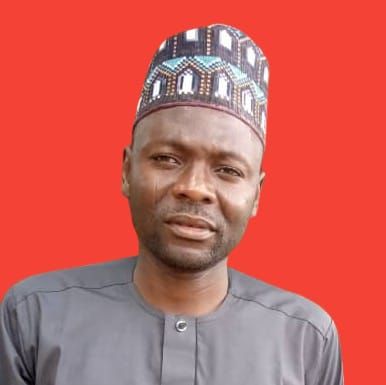By Bagudu Mohammed
A curious story made its rounds on social media recently: the son of Datti Baba-Ahmed, vice-presidential candidate of the Labour Party in Nigeria’s 2023 elections, was reportedly celebrated for graduating from a foreign university. This wouldn’t be remarkable—except Datti himself owns Baze University in Abuja. The irony was not lost on critics, who saw it as yet another case of “do as I say, not as I do,” a hypocrisy so familiar it almost feels cultural.
The post—shared widely across WhatsApp, Facebook, and X (formerly Twitter)—has no verified coverage in mainstream news, and Datti has neither confirmed nor denied it. But whether or not the story is true almost doesn’t matter. The public believed it because it fits too neatly into a troubling pattern we know all too well: leaders who sell visions they’d never personally subscribe to, who ask us to invest in dreams they themselves would never sleep in.
Though the story centers on Datti Baba-Ahmed, it could be about almost anyone in public office. The hypocrisy it points to is not partisan—it’s human. It’s about the growing gap between principle and practice, between the sermons of public morality and the whispered confessions of private doubt.
This reminds me of a debate I once stumbled upon online. Someone questioned why many men who loudly advocate polygamy for others tend to resent it when their daughters are courted as second or third wives. It’s a revealing inconsistency: men celebrate at the weddings of their friends taking second wives, but their own daughters are suddenly too precious for the same fate. What is preached with confidence becomes unbearable when it touches home.
This contradiction is not limited to marriage. A relative of mine—a long-serving teacher—once admitted that none of his children attended the public school where he taught. His reasoning? “I want the best for my kids.” But shouldn’t that be the same instinct driving the education of every child in his classroom?
It’s like the anti-racist father in the essay My Daughter Married a Negro, published anonymously in Harper’s Magazine in 1951. A vocal opponent of racism, he is brought to his knees when his daughter announces she is marrying a Black man. Suddenly, the ideals he paraded in public seem insufficient against the tidal wave of private prejudice. His story laid bare the jagged edge where ideology meets emotion.
The same theme plays out in Guess Who’s Coming to Dinner (1967), a classic film in which liberal parents are shaken by their daughter’s engagement to a Black man. Their discomfort isn’t loud or hateful—it’s quiet, rationalized, and laced with concern. That’s what makes it so dangerous. Real bias doesn’t always wear a hood; sometimes, it wears a smile.
In Nigeria today, we witness similar dualities. Leaders brand themselves as messiahs, “servants of the people,” yet race to foreign hospitals for check-ups and ship their children off to elite universities overseas. They call themselves patriots but wouldn’t trust the same systems they manage with their own lives or families.
Even former President Buhari, hailed by many as austere and humble, couldn’t resist the lure of foreign education for his children, despite the optics of leading a nation whose university students were stuck in strike after strike. If even he—the perceived paragon of modesty—couldn’t make that sacrifice, who among them can?
The excuses, when offered, are often heartbreaking. “he would have died if I had used our hospitals,” Adesina once reportedly said. This is not a vote of confidence in public service. It’s a quiet confession that leadership here is about survival—not transformation.
A friend once told me about his in-laws, both teachers, who bitterly opposed their daughter marrying a fellow teacher. “Why would she suffer like us?” they asked. There lies the tragedy: even those within the system have lost faith in it.
Admission into the Nigerian Defence Academy or Police Academy is so selective that it borders on elitism, with spots quietly reserved for the children of top officials while common citizens beg for entry. My father-in-law, at a graduation ceremony at the Police College in Bida, raised a simple question: why can’t the best students from these colleges be considered for slots at the Police Academy? There was no answer.
This disconnect bleeds into everything—our industries, our education, even our relationships. The poor do not trust the poor. We claim unity, but tribalism thrives. We preach faith, but hypocrisy walks louder. And still, lawmakers draft bills with grand ambition, ignoring the foundational question: why should leaders be allowed to send their children abroad while asking citizens to fix what’s broken at home?
Why not begin there?
Let public officials be required to educate their children in Nigerian institutions while in office. Let them be treated in Nigerian hospitals. Let them fly our roads before our flags. Let them taste what they ask others to swallow.
That would be a real mark of leadership.
Until then, the loudest sermon about service will always be betrayed by a private jet taking off toward foreign lands—filled with children who will never know the schools, roads, or hospitals their parents were elected to fix.
bagudumohammed15197@gmail.com
07034943575
